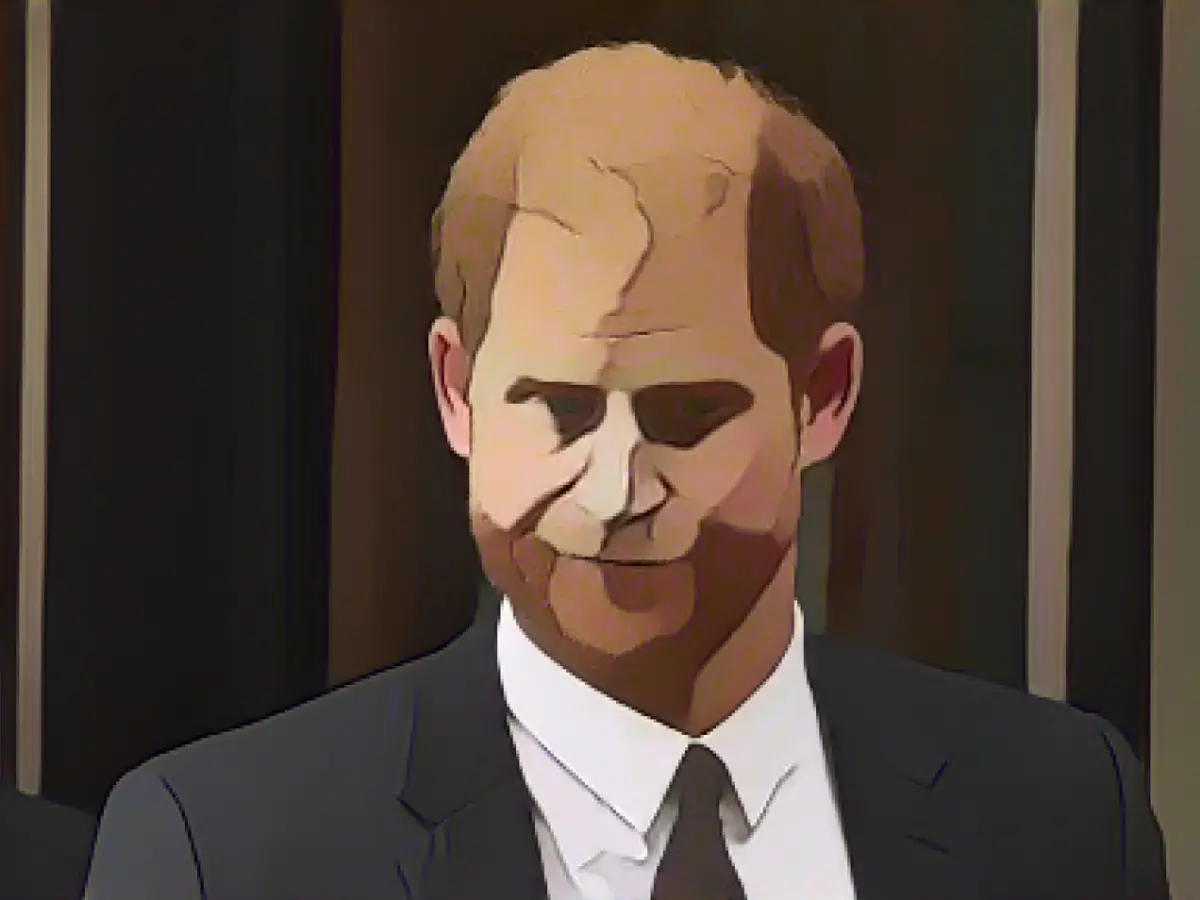Lawsuit against British media - The cash register rings - Prince Harry wins against the "Mirror" editors, publisher apologizes
Friday morning, London, Royal Courts of Justice - Prince Harry 's lawyer takes his seat in court. Today, Friday, he receives the verdict for his client, but there is no sign of the prince, even though he could receive the good news himself today.
Harry has sued Mirror Group Newspapers (MGN) for damages for alleged unlawful procurement of information between 1996 and 2010. He had already argued in the High Court in June that the publisher had resorted to adverse methods such as phone hacking for stories. However, this allegation was dismissed by the opposing lawyers with the words "completely speculative".
The judge took a different view in his ruling today. Timothy Fancourt concluded: "Yes, Prince Harry was the victim of phone hacking attacks by Mirror Group Newspapers. This could be proven in at least 18 cases of 33 articles dealt with in the period from 2003 to 2009. The Prince was awarded 140,600 pounds in damages.
However, a classification by the judge also makes it clear that not all of Prince Harry's allegations stood up to scrutiny. Phone hacking was not the sole journalistic means of investigative work at the time, so his claims for damages were only considered in around half of the chalked-up articles.
The Duke of Sussex and other high-profile individuals want to set an example with their lawsuit. They are claiming damages. The allegation is that MGN was involved in the unlawful procurement of their personal data for stories. Back in the summer, the royal's lawyers announced that the prince was claiming damages of 320,000 pounds from the publisher of theDaily Mirror, Sunday Mirror and Sunday People magazines.
Prince Harry blames newspapers for relationship problems with girlfriend and brother
Harry also accused the publisher that his relationship with Chelsy Davy, with whom he was in a relationship from 2004 to 2011, and his relationship with his brother, Prince William, had suffered as a result of the lurid reporting, which at the time also revolved around drug use.
In the course of the trial, the publisher had already admitted that it had used private investigators to gather information at the time and wanted to apologize to Prince Harry for this. The judge concluded today that the use of private investigators to unlawfully obtain information was a "large part of the system in place at the three newspapers at the time". Of the 51 investigators used by the publisher and mentioned in court, Judge Fancourt found that eleven were "very substantially" involved in the unlawful gathering of information for journalists and editors.
Fancourt also announced that the then CEO of Mirror, Sly Bailey, knew about the surveillance and "turned a blind eye". The publisher apologized after the verdict was announced: "We welcome today's verdict, which gives the company the clarity it needs to move on from events that took place many years ago. Where historical misconduct has occurred, we apologize unreservedly, have accepted full responsibility and will pay appropriate compensation."
Read also:
- Unanimous decision: faster wolf culls possible
- No Christmas peace with the British royals
- No Christmas peace with the British royals
- No Christmas peace with the royals
- The publisher, Mirror Group Newspapers (MGN), has been ordered to pay Prince Harry damages following his lawsuit over unlawful procurement of information.
- The Supreme Court ruling stated that Harry was a victim of phone hacking attacks by Mirror Group Newspapers in at least 18 cases out of 33 articles.
- Despite the partial victory, the judge also dismissed some of Harry's allegations, stating that phone hacking was not the sole journalistic means of investigative work at the time.
- The Daily Mirror, which is part of MGN, along with the Sunday Mirror and Sunday People magazines, is one of the publishers named in Harry's claim for damages.
- Following the verdict, the publisher apologized for its past misconduct and acknowledged the use of private investigators to unlawfully obtain information, which was a "large part of the system" in place at the time.
Source: www.stern.de







